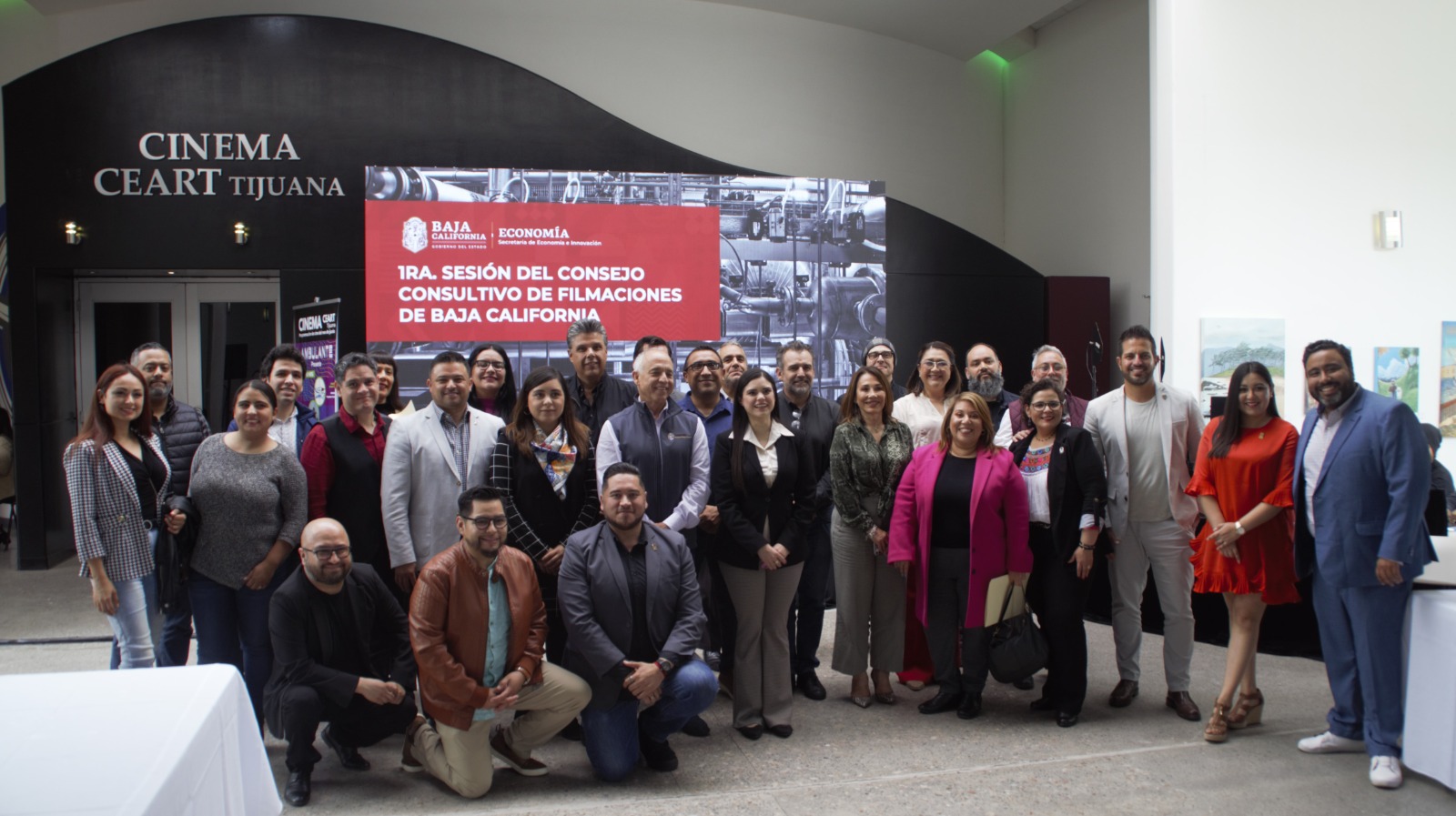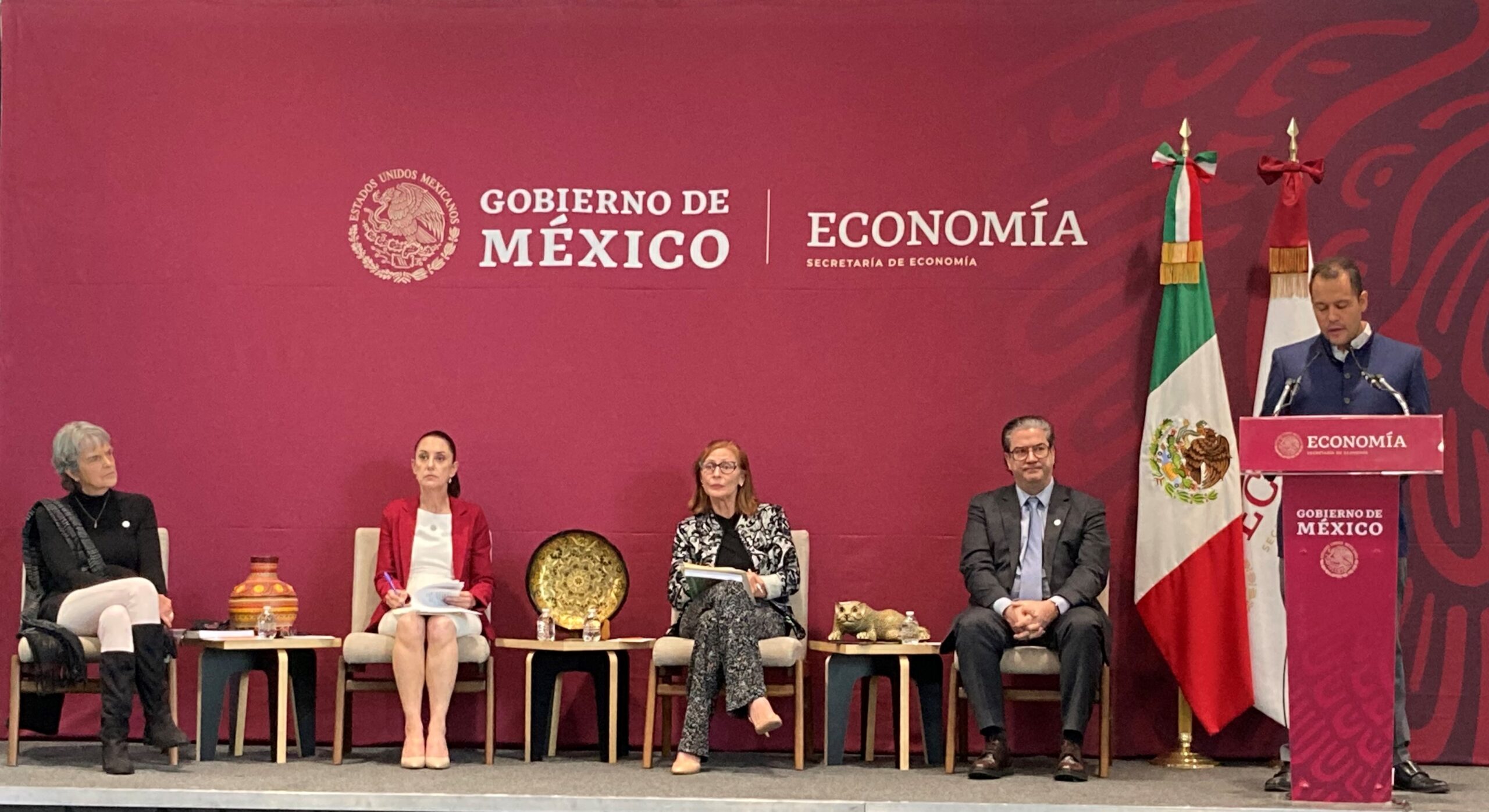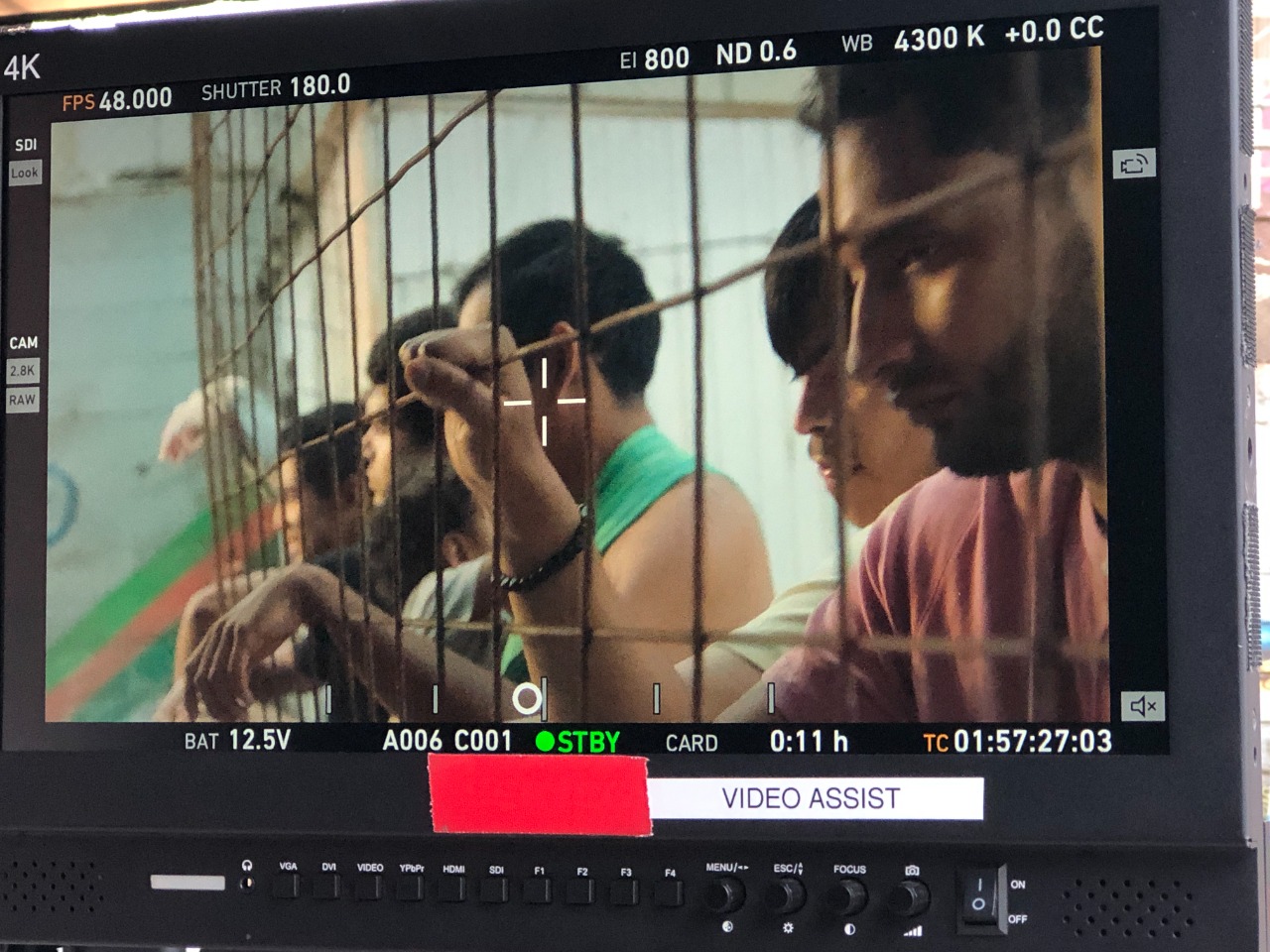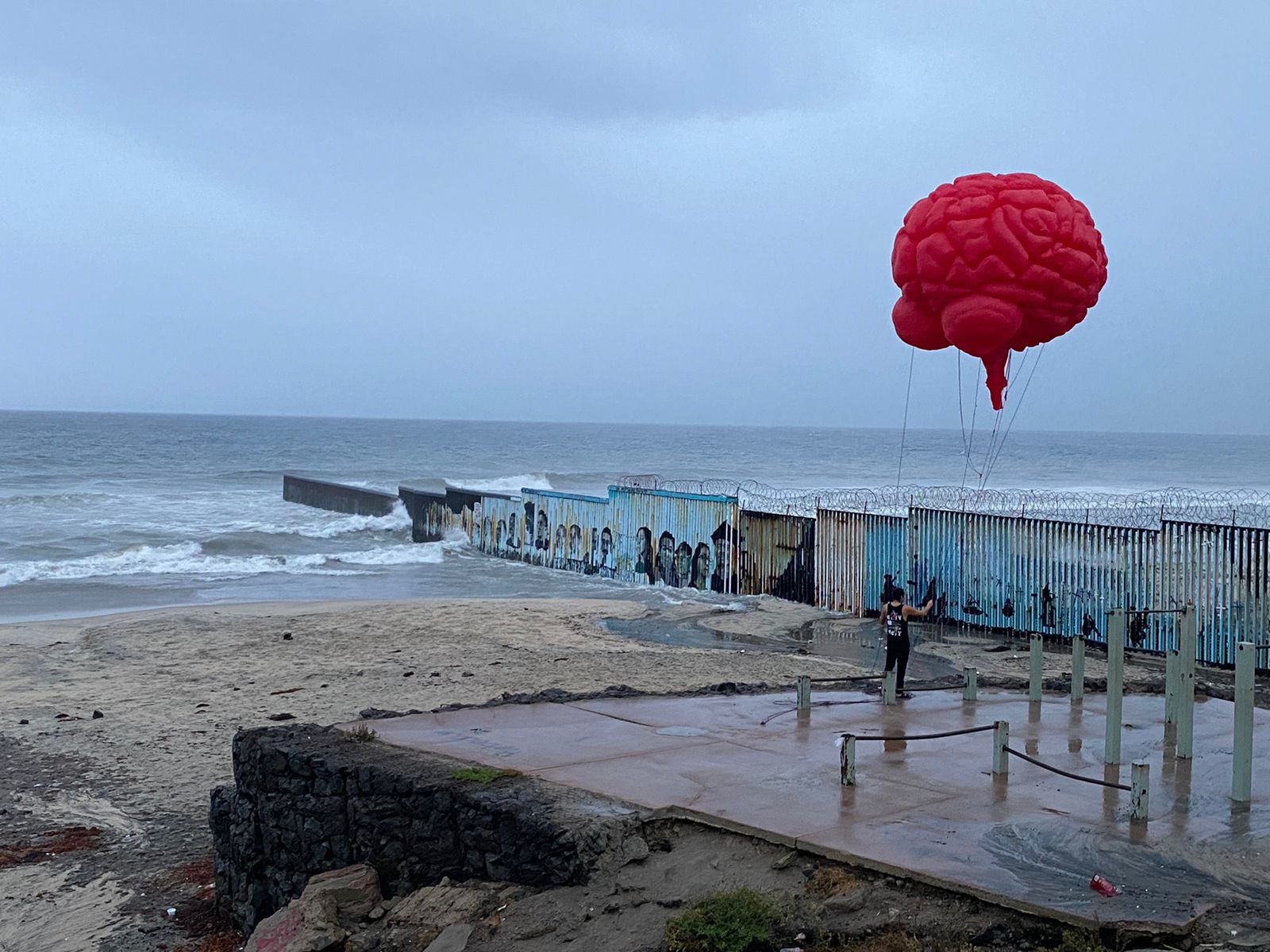- They expose economic benefits from filming
- They will promote locations, creation of specialized directories, calls and training
Tijuana, B.C. In compliance with the Law for the Promotion, Development and Development of the State Cinematographic and Audiovisual Industry, at the State Center for the Arts (CEART) the installation and first session of the Baja California Film Advisory Council took place, in a meeting headed by the Secretary of Economy and Innovation (SEI), Kurt Honold Morales, in his capacity as President of the Council.
At said meeting, the SEI Commissioner of Cinematography, Javier Espinoza Medina, was ratified as Secretary of the Council and presented the results in terms of audiovisual economic spillover in Baja California, which in 2022 was 11.8 million dollars as a result of 135 projects, in addition to presenting a protocol proposal to facilitate filming permits by the municipalities within the State.
For his part, the Director of Creative Industries of the SEI, Abelardo Vázquez Ramos, presented the strategy "Baja California: A Movie State" addressing several axes, including promotion of locations, creation of specialized directories, calls, training and strengthening of the film commission.
With the long-term objective of having a self-sufficient industry with export capacity, Alfredo González, representing BC Hace Cine, presented legal particularities at the federal level and the identification of the audiovisual value chain.
Similarly, Walter Von Borstel, President of CANACINE BC, proposed the creation of tax incentives, the establishment of financing funds and "cash rebates", infrastructure development, film festivals, support for local production, promotion of screen tourism , facilitation of procedures and permits, strategic alliances, and training and certification programs.
Prior to the next session of the Council, activities will be carried out to update the Law in order to harmonize the legal framework that governs the State, regarding which the President of the Binational Trade and Economic Development Commission, Deputy Daylín García commented: “…the presentations that have been made today have been very specific, you know what is required, it is a question of being able to land it so that it is a very successful statement of reasons, so that the executive can make the modifications in regulations in a matter of incentives. We promise to work on it and have very specific meetings to review it.”
Secretary Kurt Honold added: "Everything is perfectible, the laws are made to improve them, and I am pleased that Deputy García has expressed the will to review it and that this year we can improve it, following examples such as that of the state of Jalisco, in addition to reinforcing the educational link”.
Also present at the session were the Undersecretary of Economic Planning of SEI, Saúl de los Santos; in addition to representatives of the Secretaries of Culture, Finance and Tourism of the State Government; H. Municipalities of Ensenada, Mexicali, Rosarito, Tecate and Tijuana; schools with specific educational programs in cinematography and audiovisual production such as the Faculty of Arts of the Autonomous University of Baja California, University of the Californias, CUT University of Tijuana, Observatory Center for Cinematographic Studies and the University of Advanced Technologies (UNIAT, A.C.).
Likewise, the producers Marla Arreola, Cristina Conde, René Bueno and Gabriel Reyes; Juan Apodaca, founder of the Cinematographic Analysis Forum (FACINE); Ramón Toledo, creator of the Tomatazos website; and the President of the Northwest Hotel and Motel Association, Martha Domínguez, among others.





